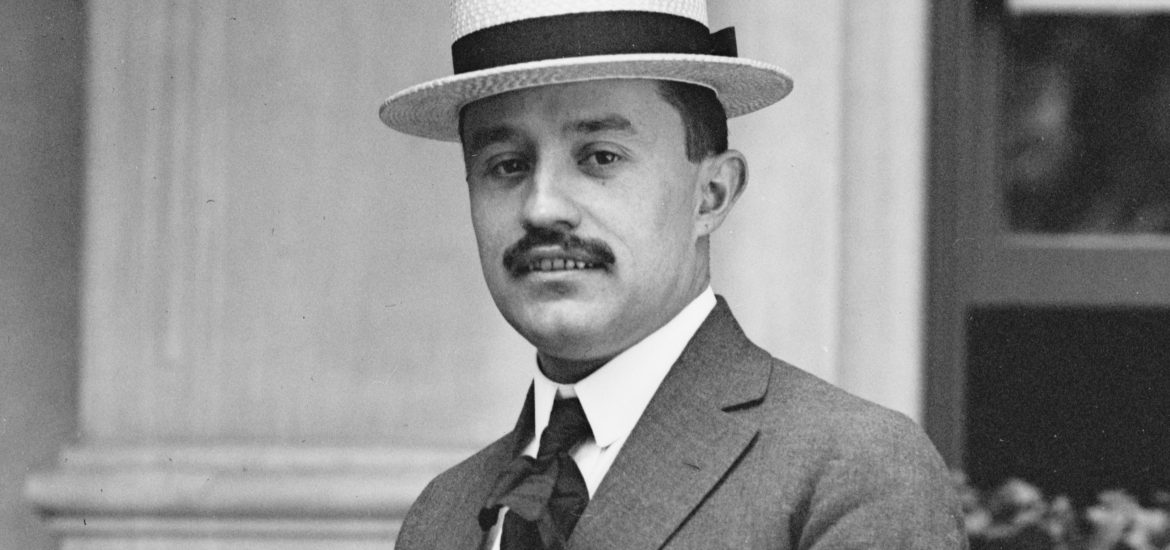In our last Hispanophone Buddhism post, we spotlighted Ezer R. May May, a pioneering scholar of the Mahayana Buddhist presence in Mexico. Although Mexico is the most populous nation in Central America and the second-most populous in Latin America, the number of scholars examining the life of Buddhism in the country is extremely low. It might be fair to say that one can count the number of scholars examining Mexican Buddhism’s history and contemporary situation with two hands, or even one. However, it is precisely because these women and men are so rare that they are scholarly pioneers with outsize influence in the realm of Hispanic Buddhism and Buddhist Studies as a whole. Roberto has summarized his work and interests in a video interview with us at: Entrevista al Dr. Roberto E. García Fernández. La Sonrisa del Buda.
Cast your eye back to a time of revolution and romance, but also violence and grey morality. When the 20th Century was a new one, burgeoning with fresh ideas of civic life, political reform, and independence from colonial rule, Mexico birthed the philosopher and poet José Vasconcelos (1882–1959). José Vasconcelos, precursor del budismo en México is an article written by Roberto García, who apart from being one of BDE’s long-time contributors, is one of the few scholars focused on Buddhism in Mexico. As the English translation of Roberto’s article notes:
“The result of his work would be one of his most important writings, Estudios indostánicos (Hindustani Studies, 1920), in his own words: “a sort of manual for the study of Hindustani thought.” (1938 [1920], 9) In this book, touching on a range of philosophical and religious currents in India, Vasconcelos devotes a long section to Buddhism, one of the first important Latin American contributions—and definitely the first Mexican one—to the informed study of Buddhist thought. Despite countless imprecisions, generalizations, oversights, and methodological mistakes, Vasconcelos’ book represents an initial effort to study and understand Buddhism from its sources and via erudite reflections made by renowned 19th and early 20th century orientalists. . . .
. . . In studying the doctrines, he completely omitted Mahāyāna sources, favoring exclusively several titles from the Pali Canon (in the English translations of the Pali Text Society and the Sacred Books of the East series), especially turning to the Theragāthā and Therīgāthā (Therita-Gata [sic]), Jātakas, Vinaya, and Milindapañha. He thus created—without planning to— the idea of a Buddhist corpus whose impact on readers has yet to be studied. In parallel and via this work, Vasconcelos launched and established the foundations for Buddhist and Indology studies (“Hindustani” as he would have said) in Mexico, fields of academic study for which there would be a vacuum of important works in this country for several decades afterward.”
It is not an exaggeration to say that scholars like Roberto Garcia and Ezer R. May May are successors to Vasconcelos. Not only are they interested in a more accurate picture of Buddhism overall, but they also shine a light on the relevance of Buddhism in the contemporary world and in Mexicans’ daily lives. For example, Roberto’s La pandemia y el poder de las palabras protectoras del Buddha, which was written early last year in the grip of COVID-19, puts the pandemic into a Buddhist perspective, fortifying us with the intellectual and meditative tools to weather this trying period in human history. In Los animales y el cultivo de la virtud en el budismo, he discusses the unique position of Buddhism in relation to animals: that not only are they sentient beings and therefore worth our protection, but ultimately latent buddhas and part of the same cycle of rebirth as we human beings.
Finally, Roberto was also co-editor of a book of a landmark name in Mexican Buddhism: the late professor Luis Óscar Gómez. The book is reviewed by Aleix Ruiz Falqués (one of BDE’s Spain-based contributors and an accomplished scholar on Pali and early Buddhism) in Reseña: La sonrisa del Buda: estudios sobre budismo. Ensayos en homenaje a Luis O. Gómez. Ed. Roberto E. García y Adrián Muñoz. Ciudad de México: El Colegio de México, Centro de Estudios de Asia y África, 2021. Prof. Gómez was born in Puerto Rico in 1943 and passed away in Mexico City in 2017, and he touched the lives of many students, some of whom have gone on to become scholars in their own right. These students of Prof. Gómez have found a platform and home on BDE, where they continue to publish informative content about his research.
It is to the work of this distinguished academic, whose work continues to be studied and expanded upon by his students, that we turn next.


